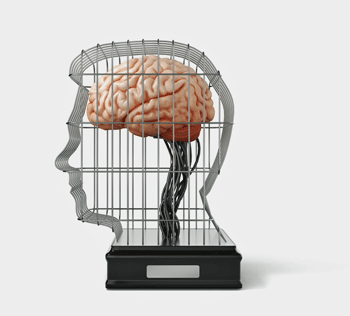Dolphin
Senior Member (Voting Rights)
https://www.healthrising.org/blog/2...atigue-fibromyalgia-long-covid-brain-funding/
The NIH Wants Your Brain

The NIH is looking for ME/CFS and fibromyalgia brains to better understand these illnesses
The NIH wants your brain – it really does. (Not right now – later.) I don’t know when this happened but it’s happened. If you want science to make use of your brain to help understand what’s going on chronic fatigue syndrome (ME/CFS) or fibromyalgia after you’re gone there’s a way to do it.
This interesting possibility arose during the Q & A session after the ME/CFS Roadmap presentation. After a NANDSC member strongly asserted – citing the need to look for things like “transposable elements. endogenous retroviruses and epigenetics” and damage to the brain and spinal cord that autopsies would be very helpful, Vicky reported that it is possible to provide ME/CFS brains to the NIH Neurobank. (Who knew?)
Noting that suicide is an issue with ME/CFS Vicky alluded to the sensitive nature of donating one’s brain, but Lucinda Bateman popped saying she’d just had a conversation with an ME/CFS patient who simply wanted to help out the field if she could.
It turns out that it’s remarkably easy (if not a little weird) to start the process. Click here to learn about the Brain Donor Project and here to begin the pre-registration process. After that you’ll receive an email with an information packet where you can more fully flesh out the details: your age, sex, health details, etc. ME/CFS, fibromyalgia, Lyme Disease and migraine are included. Long COVID is not. You must be over 18 and a U.S. citizen to apply.
The NIH Wants Your Brain

The NIH is looking for ME/CFS and fibromyalgia brains to better understand these illnesses
The NIH wants your brain – it really does. (Not right now – later.) I don’t know when this happened but it’s happened. If you want science to make use of your brain to help understand what’s going on chronic fatigue syndrome (ME/CFS) or fibromyalgia after you’re gone there’s a way to do it.
This interesting possibility arose during the Q & A session after the ME/CFS Roadmap presentation. After a NANDSC member strongly asserted – citing the need to look for things like “transposable elements. endogenous retroviruses and epigenetics” and damage to the brain and spinal cord that autopsies would be very helpful, Vicky reported that it is possible to provide ME/CFS brains to the NIH Neurobank. (Who knew?)
Noting that suicide is an issue with ME/CFS Vicky alluded to the sensitive nature of donating one’s brain, but Lucinda Bateman popped saying she’d just had a conversation with an ME/CFS patient who simply wanted to help out the field if she could.
It turns out that it’s remarkably easy (if not a little weird) to start the process. Click here to learn about the Brain Donor Project and here to begin the pre-registration process. After that you’ll receive an email with an information packet where you can more fully flesh out the details: your age, sex, health details, etc. ME/CFS, fibromyalgia, Lyme Disease and migraine are included. Long COVID is not. You must be over 18 and a U.S. citizen to apply.
Last edited:
